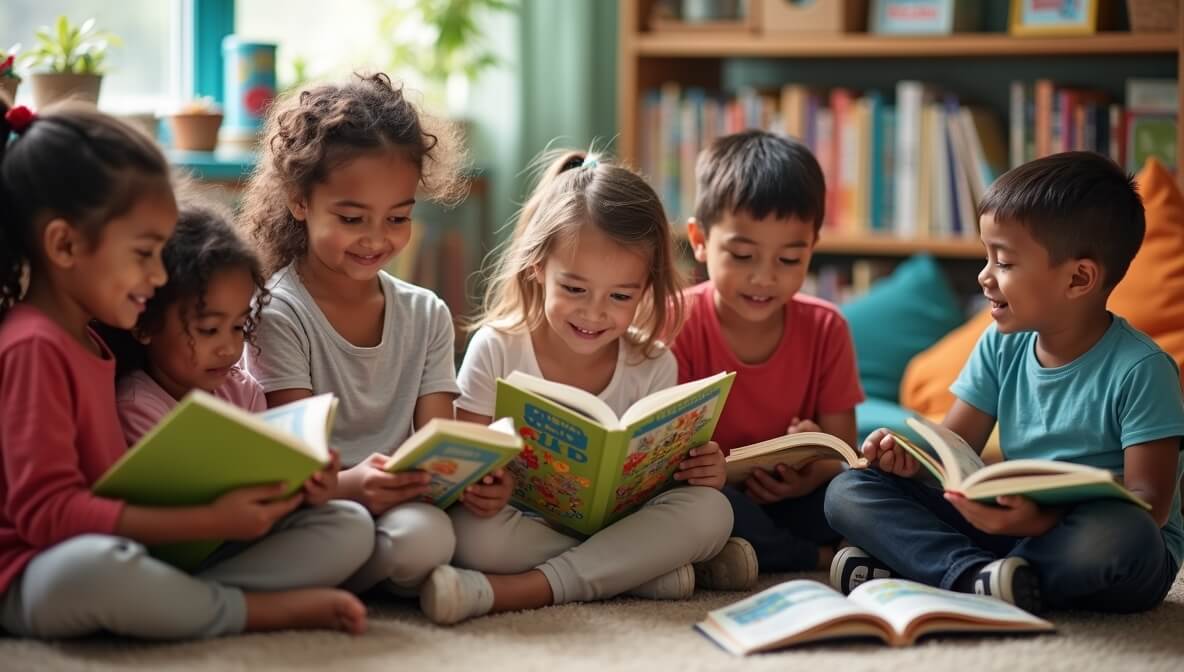August 22, 2025

Reading is one of the most transformative skills a child can acquire. It is the foundation of lifelong learning—opening doors to imagination, academic success, and emotional intelligence. While reading proficiency is often a goal in early education, fostering a love for reading goes a step further: it builds curious minds, confident communicators, and compassionate citizens.
Yet, in the digital age—with screens competing for attention and reading often framed as homework—many parents, teachers, and communities are asking: How do we make children fall in love with books again?
Reading doesn’t just help children perform well in school; it empowers them to explore the world beyond their immediate reality.
According to UNESCO, literacy is a fundamental human right and the foundation for lifelong learning. Without it, children are more likely to face poverty, limited job prospects, and civic disengagement in adulthood.
Today’s kids are growing up in a world of short videos, fast content, and instant feedback. Traditional reading must compete with these flashy alternatives. But rather than fight technology, we can leverage it to make reading fun, personalized, and accessible.
Surround children with books at home, in classrooms, and community spaces. This doesn’t require a huge budget—thrift stores, libraries, and book swaps are excellent options. Consider creating:
Autonomy is a huge motivator. The Scholastic Kids & Family Reading Report shows that 89% of kids are more likely to finish a book they chose themselves.
Let them explore:
Children’s tastes evolve just like musical preferences—think of how RocketPages’ guide on royalty-free music platforms highlights variety and accessibility as key to creative success.
Reading aloud builds vocabulary and strengthens emotional connection. With older kids, try:
For younger kids, repetition is comforting. Re-reading favorite picture books helps with word recognition and comprehension.
Use screens wisely—digital doesn’t have to be the enemy of reading. Try:
As with music education tools discussed in RocketPages’ article on learning guitar for free, the key is structured access, not passive consumption.
Programs that democratize access—like those modeled after creative commons music platforms—remind us that cost should never be a barrier to learning.
Parents are a child’s first teachers, and family engagement makes a huge difference. Ideas for supporting reading at home:
Pro tip: Pair family reading time with discussions about feelings or characters. This builds emotional literacy—a soft skill that pays lifelong dividends.
Children who grow up with a love of reading tend to:
In fact, raising literacy levels contributes to stronger economies and safer, more connected communities. According to the OECD, literacy is one of the top predictors of future life satisfaction and income stability.
Children are not born loving books—they become readers through exposure, encouragement, and example.
Reading is not just an academic skill; it’s a portal into imagination, a tool for empowerment, and a source of lifelong joy. Whether it’s a silly story before bed or a gripping novel that changes their worldview, every book holds the power to shape a child's identity and future.
Let’s give every child the gift of stories—and with it, the ability to write their own.
Stay up to date with the latest tips, expert insights, product reviews, and step-by-step guides to help you grow, create, and succeed—no matter your industry or passion.